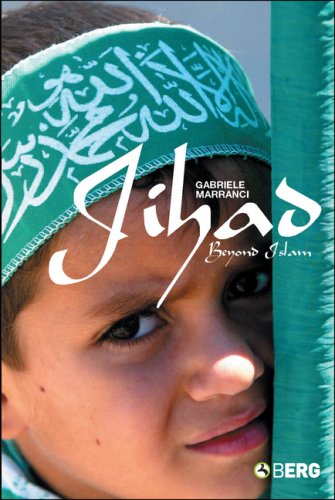

Most ebook files are in PDF format, so you can easily read them using various software such as Foxit Reader or directly on the Google Chrome browser.
Some ebook files are released by publishers in other formats such as .awz, .mobi, .epub, .fb2, etc. You may need to install specific software to read these formats on mobile/PC, such as Calibre.
Please read the tutorial at this link. https://ebooknice.com/page/post?id=faq
We offer FREE conversion to the popular formats you request; however, this may take some time. Therefore, right after payment, please email us, and we will try to provide the service as quickly as possible.
For some exceptional file formats or broken links (if any), please refrain from opening any disputes. Instead, email us first, and we will try to assist within a maximum of 6 hours.
EbookNice Team

Status:
Available0.0
0 reviewsRegarding the early split between the Shia (Ali) and Sunni (A'isha), the author noted: "Muslims experienced what Islam had clearly forbidden: civil wars" (p.27). It's simply amazing how many of the Righteously Guided caliphs, the sahaba interlopers, and members of the Prophet's own family failed to understand Mohammad's Religion of Peace: so many of his early peaceniks grabbed swords to resolve their theological disputes - I'm sure they were wrong while author Marranci is correct. [To understand how the `Misunderstanders of Islamic Peace' got it wrong, one needs to consult Robert Spencer's "The Politically Incorrect Guide to Islam."] The author wrote: "My argument is that without reconsidering what human identity might be, we cannot discuss the meaning that jihad might have for my respondents.... [The 9/11 hijackers] martyred themselves and murdered innocent people because they [jihadists] felt they were Muslim" (p.31). But, they `felt' the wrong teachings of Islam, the author would argue. The author discusses `touchy feely' remarks from other philosophers, such as Hume and Locke, and interesting thoughts about `personhood' and ponders are we `products of nurture or nature?' in trying to find the `Muslim identity,' which may be impacted by the honour-shame complex felt by Arabs of not being able to defeat the Israelis. Essentially, the author argues that there can be `bad Muslims' engaging in aggressive warfare against infidels, but there is no `bad Islam' that would `justify' offensive attacks against a `non-threatening' dhimmi populace. Nonetheless, an interesting read from a `Lecturer' in the Anthropology of Religion, School of Divinity and Religious Studies, at the University of Aberdeen.